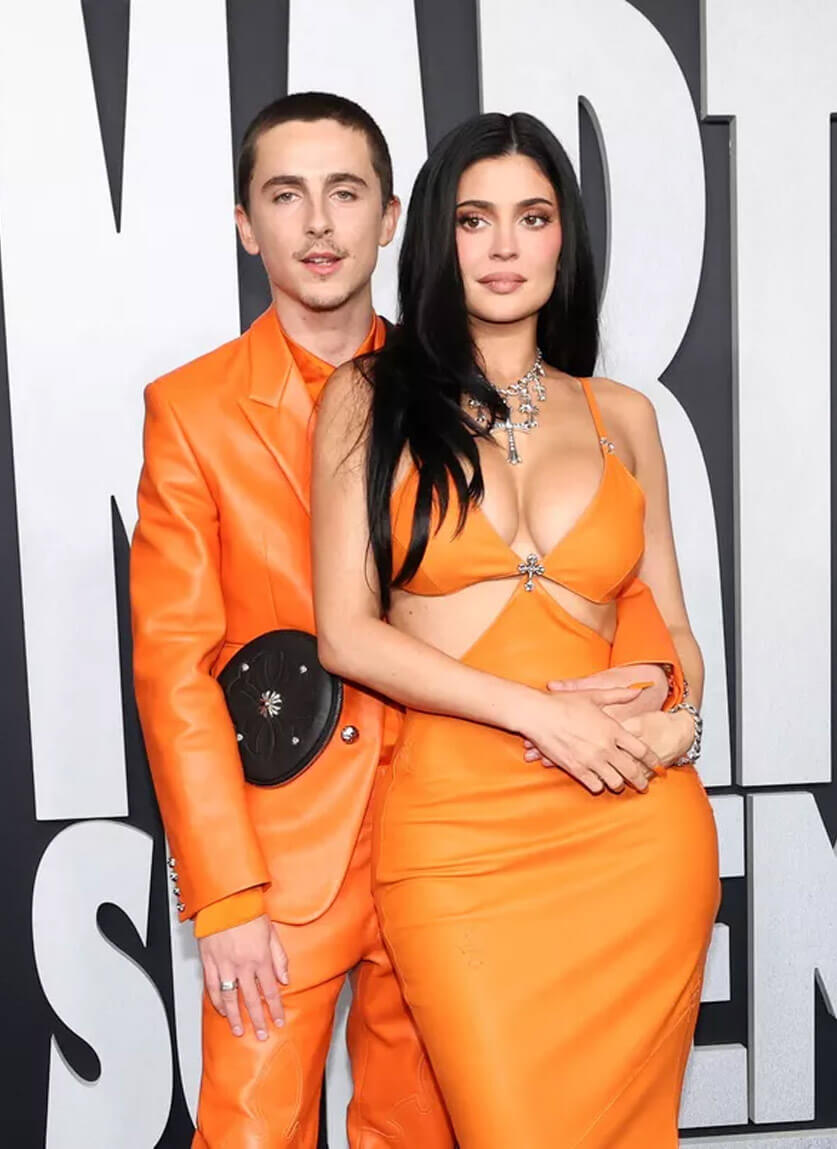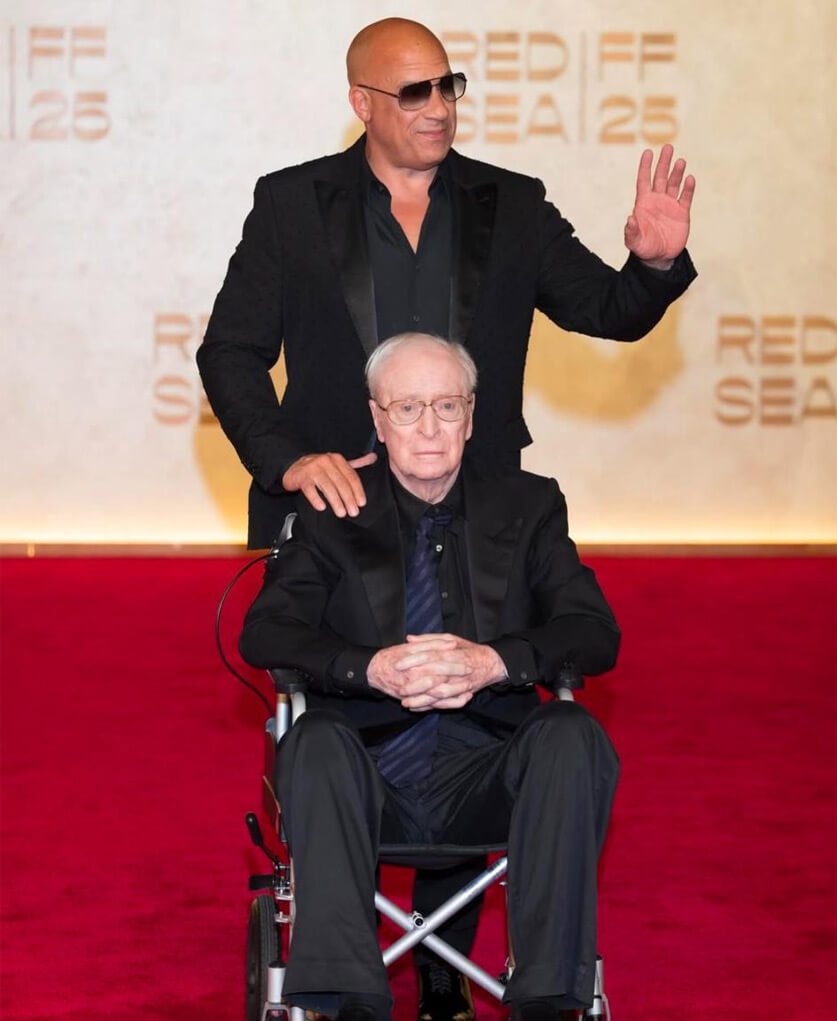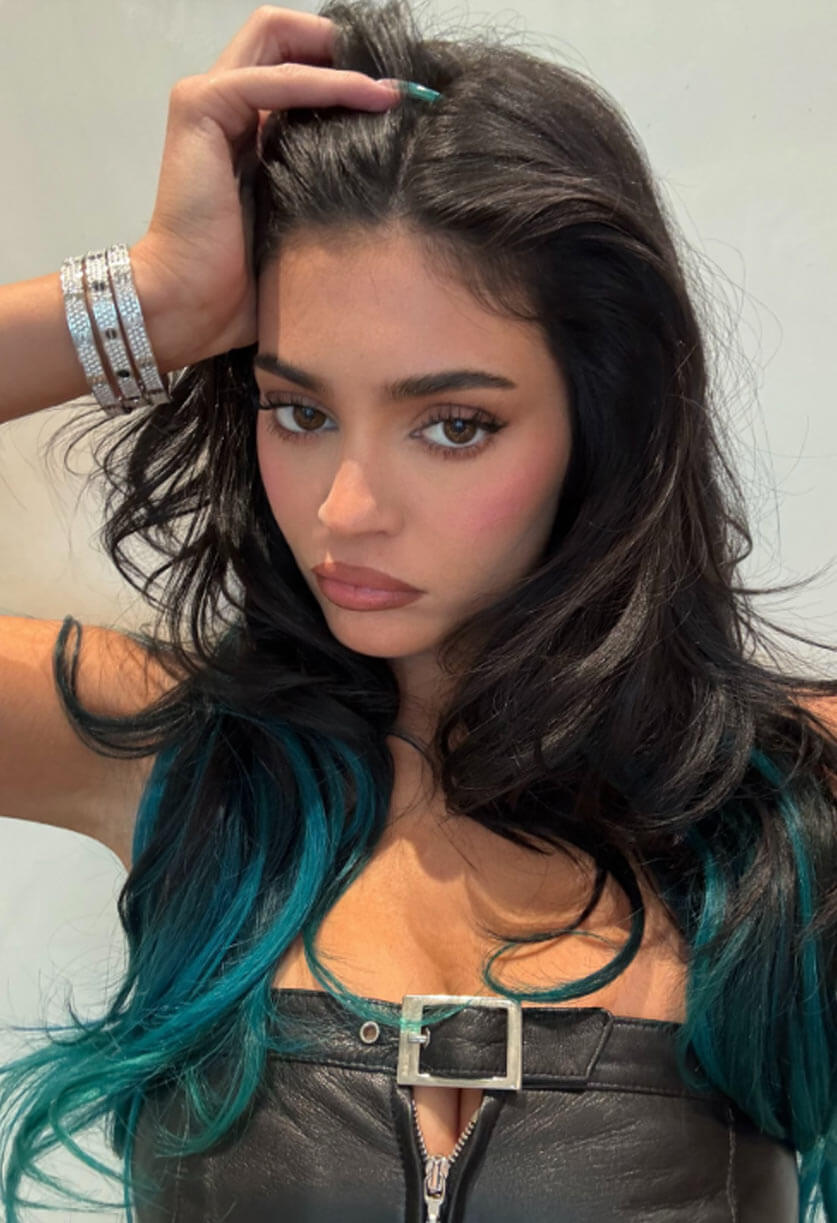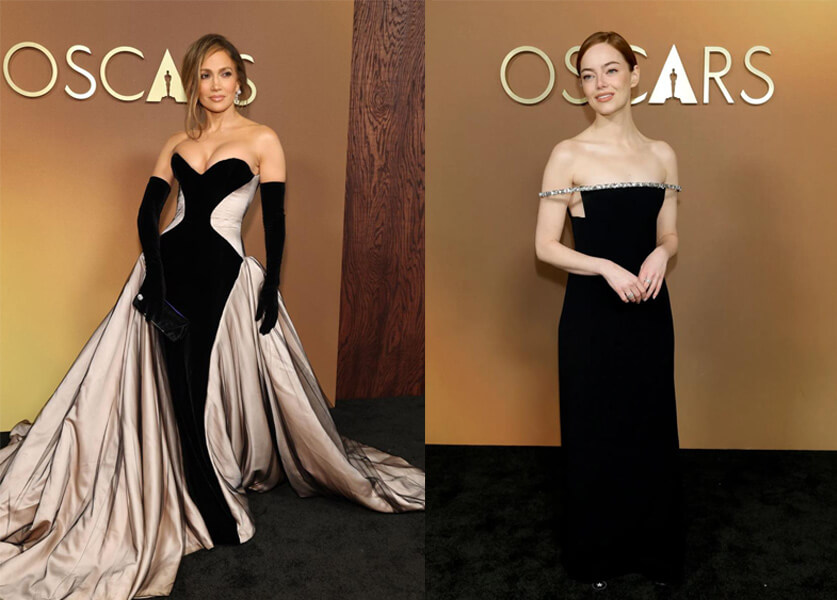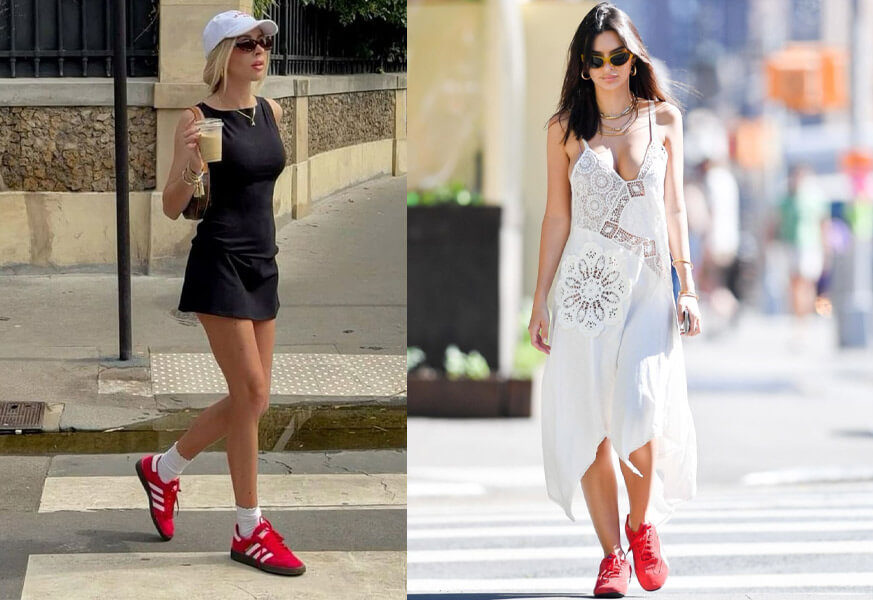Celebrity
Iman Mansour: A Harmonious Fusion of Eastern Elixir and Western Spirit
Rita Khoueiry
15-September-2023
She possesses a magnificent voice, akin to crystal - pure and enchanting, and a captivating beauty imbued with the charm of the East. Iman Mansour, the promising star of the music scene, exudes the culture and determination required to make success her steadfast ally across her diverse artistic endeavors.
Her persona weaves together cultures from different communities, retaining the finest aspects of each. She sings and mesmerizes us, she speaks and entertains us with the depth of her ideas, even though she is but in the early stages of her twenties. With unwavering determination, she has committed herself to realizing her dreams.
Iman has breathed new life into songs of bygone eras, infusing them with a contemporary touch, carrying her voice as a standard-bearer for the challenges her generation faces.
Join us in getting to know Iman Mansour, the one who possesses a voice that blends the elixir of the East with the spirit of the West.
Your voice is truly magnificent. How did you discover this exceptional talent?
I grew up in a very artistic family that deeply appreciates all forms of art. Music was a constant presence in our home, both Eastern and Western. My mother often listened to Sabah, while my father was quite fond of Barry White. It was quite an eclectic mix. My grandfather and mother, on the other hand, loved Oum Kalthoum and, of course, Warda. I also had a fondness for songs from 'The Sound of Music' soundtrack, and I adored Disney movies; I've seen almost all of them. There was also a song I liked a lot, 'Yana Yana' by Sabah, as well as many songs by Céline Dion.
When I was around 6 or 7 years old, I was invited to a friend's house who had just purchased a new karaoke machine. I still vividly remember the song I sang: 'Heal The World' by Michael Jackson. It was the first time I had ever sung, and in that moment, I experienced a sensation like no other. For the first time, I felt I could express myself freely, and from that moment on, I knew I wanted to sing. I began pleading with my mother to enroll me in singing lessons.
specialists often discourage this activity at a young age, as it is believed to have a negative impact on vocal cords. How did you manage to enroll in a music school at just nine years old?
At the outset, my mother attempted to enroll me in the Ghassan Yammine School of Arts. They were initially hesitant, considering me quite young for vocal training since their courses typically began at the age of fifteen. However, after hearing my voice, the instructors gave their approval for my enrollment. Still, my mother had reservations since vocal training can potentially be harmful to young vocal cords. Nonetheless, they assured us that they would take great care to ensure everything went smoothly.
You were the youngest student of the music expert, Madame Mary. Share your experience.
My mother sought the advice of Madame Mary regarding my early initiation into vocal training. So, I visited her and sang 'Kan Aanna Tahoun.' I will never forget the look in her eyes, and I still recall her exact words: 'Not only do you have a beautiful voice, but you also possess an exceptional vocal tone and musical ear.' She agreed to take me under her wing as her youngest student and forbade me from singing at home. It was with Madame Mary, my musical mentor, that I learned the art of vocalization.
I also took part in the 'Fayrouziyat' concert organized at school for the primary classes, under the guidance of Mr. Tony Bayeh. He asked me to learn a few songs, but my mother insisted on teaching me several through a CD containing seventeen songs. We kept that CD in the car for years.
Tell us about your first two songs, which you recently released.
In 2021, I released my first single titled 'SHOU SHTA’TELAK.' It's a song that blends Western and Eastern music influences. The lyrics were penned by Ahmad Madi, to which I added my personal touch with English words. The composition is the work of Walid Al Masih, and the distribution was handled by 360 Studios.
My second song, titled 'LAW HABET,' was released this year. It was written by Antonios Ayoub, composed by Dr. Ghada Shbeir. Ghadi Charara took care of the musical production, and Georges Kassis handled the arrangement and distribution of the music.
Why was there a delay in the release of your second single, despite the remarkable success of your first song?
That's true, there's about a two-year gap between the release of these two singles, and this delay can be attributed to my quest for a song where the lyrics perfectly matched the melody, creating the right ambiance. I turned down several proposals, convinced that I would find the right fusion. I also wanted to maintain the same level of dedication and craftsmanship in my music creation. Moreover, singing correctly is crucial to me. I believe that a good song consists of a beautiful melody that harmonizes with meaningful lyrics and emotions. For me, these three elements are paramount, in addition to technique. That's why I aim to continue creating great music that touches people's hearts, even if it means reviving old songs."
You began your artistic career by singing in English before transitioning to the Arabic language, masterfully blending Western and Eastern lyrics and melodies. Through a unique voice that effortlessly floats amid these intertwined harmonies, how did you manage to captivate us so wonderfully?
Indeed, I started studying Eastern Arabic music with Dr. Ghada Shbeir two years ago. Initially, it was a bit challenging because I was deeply rooted in the technique and mindset of Western music. It took some time for me to adapt and learn the distinct techniques of Eastern music in order to blend the two styles. Honestly, through Eastern music, I felt a connection to my roots, my ancestors, and our rich history. I can confidently say that I am a fusion of two cultures and two types of music.
Did you find yourself in this blend of music?
Yes, I absolutely loved this blend. I found myself in both types of music, and it's through them that I express my uniqueness. For instance, I added a techno-pop twist to an old Arabic song.
Does this relate to the emotions you feel?
Absolutely. When I'm happy or in a good mood, I enjoy listening to Latin songs or Afro rhythms. I also appreciate Whitney Houston's songs, even if they can be a bit melancholic; I simply love their energy. The same goes for Barry White's songs. On the other hand, when I'm feeling sad, I listen to songs by Sherine Abdel Wahab or Etta James, or even classical music. In fact, music has this incredible ability to accompany us through all the emotions we experience.
You haven't yet revealed your new project to the press. You're reserving the exclusive details about your new song for Special Madame Figaro, and we are honored.
In an exclusive reveal, I'd like to inform the readers of Special Madame Figaro that I am currently reimagining the legendary song of Warda Al-Jazairia, 'Nar El Ghira,' one of my favorite songs, with a modern twist that represents me while ensuring that people never forget the past and appreciate it. In my opinion, Warda is one of the greatest icons in the history of Middle Eastern music. She undoubtedly impresses me as she studied both Western and Middle Eastern music. I believe the past undeniably influences the present; we continuously learn from the past.
I thought to myself, 'I want to sing 'Nar El Ghera.' I wanted to reimagine it in my own way so that the generation I belong to would also appreciate it. When I approached Georges Kassis, he was initially surprised. He told me it wouldn't work, but I was convinced it would because I love the rhythms. It was very challenging, but we succeeded.
What's the secret behind your fondness for Warda?
Warda holds a special place in my heart because I feel we share many commonalities. She began singing at a very young age and had a blend of Eastern and Western influences. I greatly admire her energy and her songs.
Does this mean you'll be reimagining other iconic songs by Warda?
Indeed, I might have a different interpretation of a song that sounds quite similar. This also applies to creating my own songs concurrently. I want to explore different musical paths while preserving my artistic identity.
You mentioned that this song reflects you. How does Iman handle 'the fires of jealousy'? And what's your perspective on jealousy?
Jealousy is something everyone experiences at some point in their life. My goal was to delve deeper into the world of jealousy and highlight the fire this emotion can ignite within us. In the music video, we really hope that through symbolism, people will understand that the song is centered around introspection.
To me, jealousy is one of the primal emotions that everyone feels. It's a feeling that helps us evolve, to understand deeper why we feel jealous. It's like an inner compass of oneself. Additionally, since most people of my generation are in relationships now, I wanted to shed light on this topic and assist those grappling with this feeling.
Do you think your generation is often accused of never being satisfied?
I believe satisfaction has evolved and diminished to some extent. In the past, people invested more energy and time into their achievements and work. However, nowadays, it seems that satisfaction has become more linked to material things, such as physical appearance and material possessions, etc. We tend to focus our attention on materialistic aspects. This doesn't mean that these possessions are not important, but it's crucial to find a balance.
Your song 'Law Habeit' addresses a very important issue, namely the damage caused by toxic relationships and the numerous cases of psychological and emotional manipulation, as well as harassment and extortion, especially on social media platforms. You've been a trailblazer in taking this approach. Do you naturally gravitate towards songs that carry a social issue?
I know several young people who have experienced psychological and emotional manipulation due to cyberbullying and extortion. Before shooting the music video with And Beyond, we decided to address this issue. I was truly passionate about this cause because I was aware of the repercussions it can have on a person. So, we decided to launch a campaign titled 'ENTE BTERESME LHDOUD' (You set the boundaries). We chose the feminine 'ente' (YOU) in Arabic because women are at a greater risk; they are naturally more emotional. Another reason is that in our society, it's considered shameful for a woman to experience something wrong. The campaign wasn't exclusively for women. We initiated the 'draw the line' challenge by drawing eyeliner. I'm very grateful because there was a lot of positive response, with many influencers, actresses, and journalists taking up the challenge.
A message to those women who experience cyberbullying and extortion?
I want to tell them not to be afraid and that there is nothing shameful about sharing their story. They should talk about what's happening to them and express their thoughts and feelings. In fact, we collaborated with the Lebanese Internal Security Forces, who offer a service called 'Ballegh' on their website, where people can share their harassment stories. This is important because it encourages them to speak out. If the issue is not addressed from the beginning, it can escalate and, in many cases, lead to suicide.
I really want to convey this message and emphasize that there are accessible solutions. I feel like this issue is prevalent not only in our society but worldwide. It can happen to anyone, regardless of age or social background. I felt the need to draw attention to this topic and raise more awareness about this reality. You are not alone; there are resources available to help you, and it's essential to speak out to protect yourself and others.
You mentioned that you are a fusion of two cultures. What do you mean by that?
My mother is Lebanese; she left Lebanon for the United States to escape the civil war. On the other hand, my father is a Palestinian mother-of-pearl artisan with French citizenship.
Tell us more about your family.
My maternal grandfather, Kamil Saade, was a poet. He was a critic and wrote for the supplement of the Annahar newspaper and the Al Majalla magazine. He was also a specialist in the Arabic language and played the Oud and Kamânche. My maternal grandmother knew how to paint and act. She discovered her talent for painting at the age of 70.
My father's parents were writers, and it's said that his father was a good dancer. In the past, some members of his family were involved in import-export with France. Since 1865, they crafted souvenirs from mother-of-pearl and olive wood. They already had contacts with Europe and did business with France and South America. They even established a company in Paris. Because they wanted Palestinian citizenship, they refused Jordanian nationality in 1967. That's why they only had French passports, which is why I have a French passport even though I am of Palestinian and Lebanese descent.
Why does this topic bother you, especially since your mother can't grant you Lebanese nationality?
At first, this topic used to sadden me because I felt too Palestinian for the Lebanese and too Lebanese for the Palestinians. I felt caught in between. However, I've learned over time that a passport doesn't really dictate who I am, although I am very grateful for the French passport as it has given me the freedom to go and live wherever I desire. In fact, I spent a significant part of my childhood in France, a country whose culture truly impresses me.
The blood running in my veins is Palestinian-Lebanese. Palestine and Lebanon will always be a part of me, regardless of the situation. Over time, I've learned that I won't let a piece of paper dictate who I am. I am my culture and my roots. In fact, I know a lot about my culture; my father would talk to me about Palestine and share stories that his grandfather told him.
What did he tell you about Palestine?
My father is passionate about Palestinian architecture. He would describe to me the many houses made of pinkish stone. He also spoke about the abundance of olive trees and the unique energy that emanates from that land. He mentioned landscapes, historic cities, traditions, and the rich history of the region. His stories allowed me to connect with my roots and understand the cultural significance of Palestine in our family.
You live in a culturally rich setting that brings together the West and the East: France, Palestine, and Lebanon. What has this blend brought you, and what have you acquired from each of your parents?
I am extremely proud of it. The Palestinian-Lebanese mix opened my eyes to the fact that two neighboring countries can have so much in common while being so different. It shows that Arabs in general are so diverse, yet there's something that unites them as a people. From my father, representing Palestine, I gained love for that country as well as an appreciation for its history, culture, and art. I admire the resilience of its citizens; it's ingrained in them. I also appreciate their artistic side: their folk music, embroidery work, and mother-of-pearl craftsmanship. Their cuisine is also incredibly delicious. From my mother, representing Lebanon, I acquired a love for reading, her elegance, and her attachment to her homeland. Despite living in America and my father in France, they decided to return to Lebanon so that we would be close to our roots and grow up in that land.
Would you have preferred to live in France?
In fact, I was born in Lebanon. France is my home, just like the Middle East. I am attached to both.
What do you particularly love about France, and what attracts you to Middle Eastern cultures?
I love the appreciation for art among the French people. They have an incredible history and enjoy a certain freedom. From the Middle East, I love the warmth and generosity of the people. They are all very welcoming. There's also the warmth of the extended family.
If you had to choose between these two countries?
When I was asked which of these two countries I loved more, my response was, “It's like asking me which of my father or mother I prefer.”
If you weren't an artist, what profession would you have chosen?
Being an excellent student during my youth, my teachers pressured me to become a doctor. I was very clear with them and expressed my disagreement. So, they advised me to at least consider pharmacy school. I applied and got accepted to many universities in Europe, the United States, and here. However, during my first year of studies, I realized it wasn't what I wanted to do.
The thing is, when I was a child, I knew I wanted to sing, but I would have never imagined becoming a singer because I was a very good student. You know the culture here; if you're a good student, you must study. Art doesn't count for them; they devalue it a lot. I am very grateful to my parents for allowing me to express myself.
Is there a singer you wish to resemble or whose footsteps you consider following?
I don't want to resemble anyone. I don't want to stray from who I am. I feel like people in my generation don't really understand this point.
Do you consider yourself different from people of your generation?
A lot, especially on a cultural level because, as I mentioned before, I'm too Lebanese for Palestinians and too Palestinian for the Lebanese, and all of this with a European touch. Life has taught me a lot from a very young age. I've been through so many trials, and I believe the universe sends us difficult times so we can learn something and grow. So, through these tough times, I've learned a lot.
Besides singing, what do you enjoy doing?
It might sound strange, but I love watching Korean dramas. It's just a way for me to relax. I also enjoy going to the gym.
If you were an object, what would you be?
If I were an object, I would be a book about life. It could be a real or fictional story; the importance lies in the message it conveys. In the end, love conquers, and when you have a positive outlook, you can attract what you desire. That's what I've learned in my life. Through love, you can work hard and achieve any goal.
If you were an animal, what would you be?
If I had to be an animal, I would choose the phoenix because I rise from my ashes, and nothing can stop me. It's a bird that represents freedom.
What makes you sad?
When I feel like my voice doesn't matter or isn't heard.
A moment that made you very happy?
Once, I was sitting with my best friend, and we were laughing a lot, and for a second, I thought, “I am so grateful for you.” I realized I have so much to be grateful for: my parents, my career... Sometimes, I feel like I have the responsibility to be the voice of my people.
What are your upcoming projects?
I'm currently working on another single. There are a lot of songs that come to mind, but I still don't know which ones to choose. Some of these songs are old, others are new. However, I am determined to bring back old songs to breathe new life into them.
What topic would you like to address in your next song?
There are many causes I would like to highlight in the future. However, it's the ones that affect my generation that are most likely to pique my interest.




